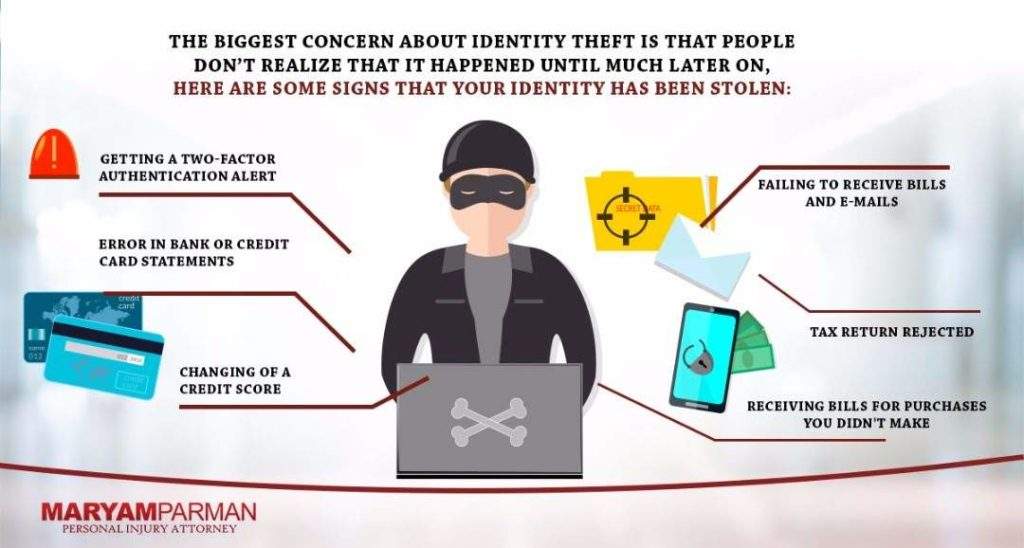How do you react when someone pronounces your name wrong or calls you by some other name? It can be annoying, right? What if someone takes a loan from the bank using your name or maxes out your credit card? It’s a scary thought, isn’t it?
Identity theft is the most common cyber threat and is growing immensely. According to a 2017 Identity Fraud study, a record 15.4 million Americans were victimized by identity theft; an increase of more than 2 million victims from the previous year.
What exactly is identity theft?
It is illegally obtaining the personal information that defines one’s identity, such as your address, social security number, date of birth, credit card number, bank details, etc. Now a cyber-criminal can manipulate and misuse the information in as many ways as he wants to.
How do you know when you have been victimized?
The biggest concern about identity theft is that people don’t realize that it happened until much later on. If you think your identity has been stolen, instead of sitting there bewildered, you must be proactive to understand the warning signs and prevent yourself from a grave financial or reputation damage.
Here are some signs that your identity has been stolen:
Error in bank or credit card statements
Don’t ignore any unauthorized transaction no matter how small the amount is. This may be a hint before it involves a large amount of money. The trick is aimed at testing the account if a charge will go through. Every major bank lets their customers track their expenses instantly online or via a dedicated smartphone app. So, any suspicious activity on your account must not be neglected anyway. Don’t wait for a monthly statement but regularly monitor your credit reports and all your financial accounts to recognize fraud as quickly as possible.
Failing to receive bills and e-mails
Follow up with your creditors if your bills are not arriving on time. “Identity thieves will steal victims’ mail-and in some cases change their mailing address via the Post Office to a fraudulent address they’ve set up,” says security consultant Robert Siciliano. This could be an indication that an identity thief has intruded.
Receiving bills for purchases you didn’t make
Thieves may purchase goods or avail services under your name and exhaust your credit limit. If you start receiving bills or notices of overdue payments which you have no idea about, then somebody might have stolen your identity to gain financial benefits. Pay attention to your incoming and outgoing bills and statements both in your inbox and mailbox. If this happens, you must inform your creditor that you have been a victim of identity theft and it’s not your debt. Also, file a police report to avoid further issues.
Tax return rejected
If this happens, you have more reasons to worry. An identity thief might have filed a tax return in your name to walk off with a fraudulent return. While filing your taxes, if you receive a notice that a filing has already been made under your social security number or your return is rejected even though there are no typos and your social security number is absolutely correct, then there is high chance that your identity has been compromised.
Data security problems reported by your employer
It’s not a big deal for hackers to know about your current or previous employer, thanks to social media. If someone gets hold of your social security number and the name of your current employer, then it’s not very difficult for him to collect unemployment benefits in your name. In that case, you might get informed about it by somebody from human resources.
Getting a two-factor authentication alert
We often set two-factor authentication alerts for our individual account. If you get text messages with a six-digit pin to enter to avail a service or membership, you don’t recognize then beware! Logout of that account and change password immediately. Change all the passwords that may be tied to that email on other sites.
Changing of a credit score
A changing credit score can also be a red flag for identity theft. “Check your credit reports frequently for accounts you didn’t open and hard inquiries which could suggest fraudsters are trying to extend credit in your name,” advised by Ralph Rodriguez, chief technology officer at Confirm.io. You may get phone solicitations for expensive items due to the high-ticket activity in your account.
What to do if you become a victim of identity theft
Most cyber attacks are aimed at stealing financial data and email credentials, but hijacking of social media accounts is equally scary. Circulating private photos and videos all over the internet is the matter of public embarrassment.
If you become a victim of this identity theft, take immediate action.
- Discover the source of the theft. Try to remember your online activities that might have led to the theft; any strange attachment you opened, downloaded a suspicious software/app, registered in an e-commerce site, used your credit card to register in a new website, etc.
- Change the password immediately.
- Contact one of the credit reporting agencies’ fraud alert departments and place a fraud alert on your credit report.
- Inform your lenders, banks and insurance companies explaining the situation.
- Inform the police. This is the proof of the crime. Credit reporting agencies would further investigate according to this report.
- Check if your computer has been affected by the virus. If your identity has been compromised through virus or malware, it may still be hiding in your computer and attack again. Run an updated antivirus program or seek advice from cyber-security experts.
These are the dangers of living in a digitally connected world. However, by keeping our senses open and acting proactively to fight against all these threats, we would have to be helpless.

